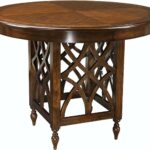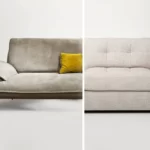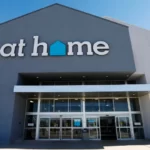The home furnishings industry has been rocked by the sudden closure of Lane this week. Retailers who carry the brand are attempting to determine how to reduce their floor assortments and other factors.
“They were a reliable partner for Darvin. That makes it even more of a shock,” said Will Harris, president of Top 100 Darvin Furniture & Mattress. “It’s somewhat of an important line for us. It’s one of a number of important lines for Darvin. Hopefully this isn’t a harbinger of things to come.”
Harris claimed that even though it’s difficult to part ways with a revered brand like Lane, Darvin will be able to change course. But it still stings.
“We don’t have major exposure, but there are important vignettes and SKUs we do really well with from Lane,” he said. “We’ll have to start the process of closing those out.”
The Coon Rapids, Minnesota-based retailer HOM Furniture, according to Kyle Johansen, executive director of merchandising, said-based retailer isn’t overly exposed by the closure, but interestingly had containers from Lane is expected to show up this week.
“It’s always sad to see American companies go under especially iconic brands such as Lane. More importantly it’s a massive loss of jobs for people we have worked with and partnered with over the years,” Johansen said. “I hope someone out there is able to pick up the pieces and salvage at least a portion of the business.”
According to owner Jim McIngvale, top 100 retailer Gallery Furniture had been a Lane dealer for years before discontinuing the brand a few years ago.
McIngvale was quick to offer his thoughts on what led to the company’s downfall. “Another great American brand bites the dust thanks to offshoring. Thanks, offshoring, for ruining this country,” he said.
It was a sad day for the industry to witness the legacy brand leave, according to Marc Schewel, president and CEO of Top 100 retailer Schewels Home.
“It’s unfortunate when any business in our industry closes down. It’s a great loss to employees and consumers, customers and suppliers,” he said. “Lane, United, always gave us tremendous value for our customers.”
During the worst of the supply chain crisis, Schewel noticed a trend of order cancellations, and he questioned whether this trend may have contributed to the company’s demise.
“United, during the pandemic, when there were shortages and you had a hard time getting merchandise, they were loyal to a number of their bigger retailers,” Schewel said. “These are the same people who turned around 6-8 months ago and canceled huge orders, leaving the company (Lane) with warehouses full of imported kits and made furniture.”
The news surprised Jake Jabs, CEO of Top 100 American Furniture Warehouse, when he learned of it on Tuesday morning. The abruptness, he claimed, was especially unsettling.
“That’s what bothers you. I think we can all understand people losing money in this day and age, but to me, they should have been doing things more gradually and honestly,” Jabs said. “We can all understand honesty, but to come out of the blue and close the factories and lay off all those people, it’s a black eye on the furniture industry.”
AFW had been Lane’s top dealer for many years, according to Jabs, but recently, he said, cracks have started to appear in the relationship. “We could sense that things were getting worse. I advised my buyers not to purchase any Lane at the most recent High Point Market because we had heard that they weren’t paying their bills. I didn’t think it was so bad where they were closing all their facilities overnight,” he said.
In either case, Jabs said he anticipates the process to result in bankruptcy, which he claimed spreads the bad luck.
“When it comes to bankruptcy, everybody loses. The people that own these plants should be responsible for their own actions,” Jabs said. “We’ve got people who have been waiting on sleepers from Lane for months. That’s what’s sad about this; they just leave everybody out in the cold.”
But Jabs asserted that he does not believe Lane’s departure is a sign of a more widespread issue facing the entire industry.
“I think it’s a one-off. I personally buy from 50 factories and as a company, we buy from 200. We have a good perspective of what’s going on in the industry,” Jabs said.
Source: read it here!













